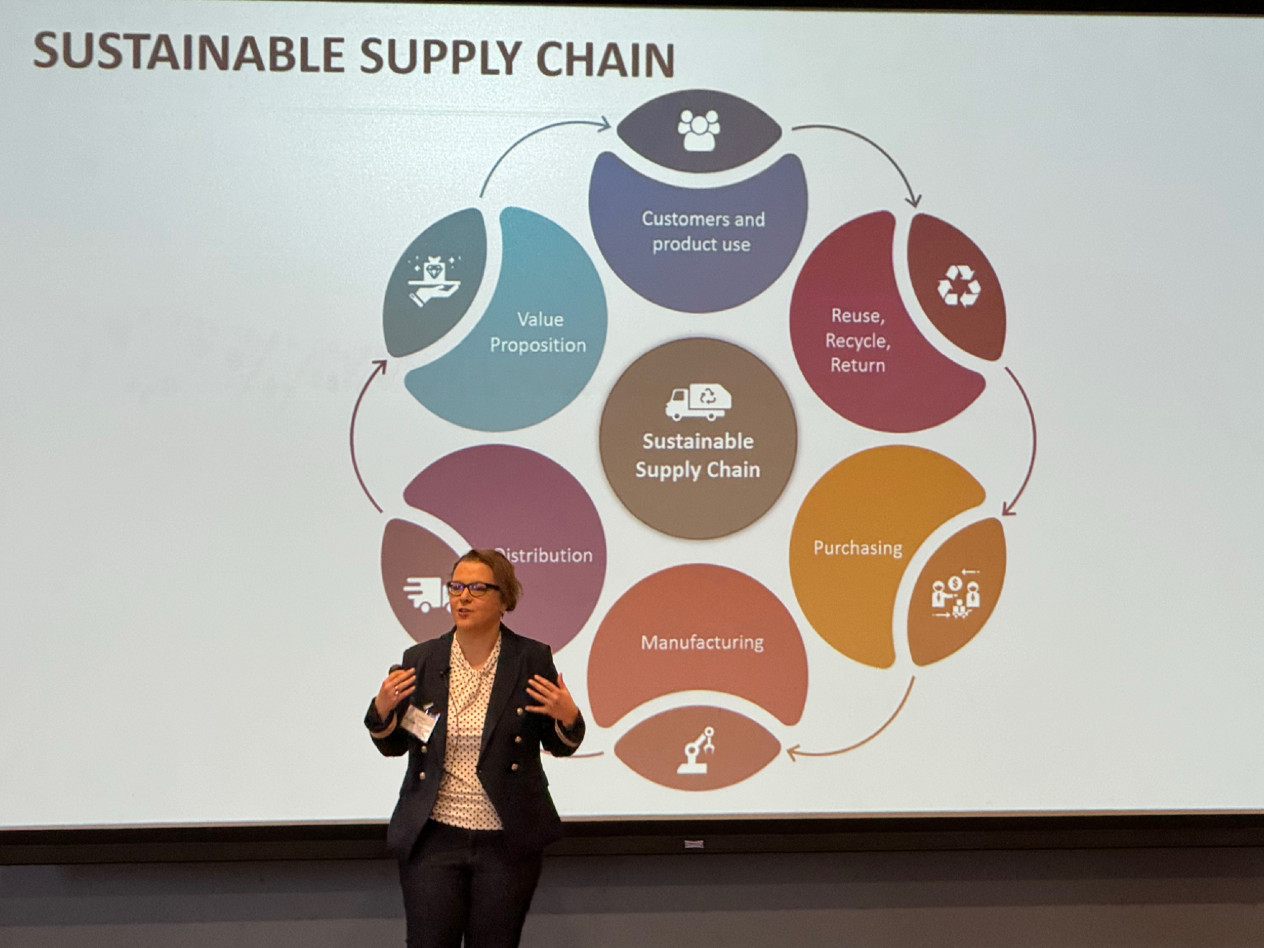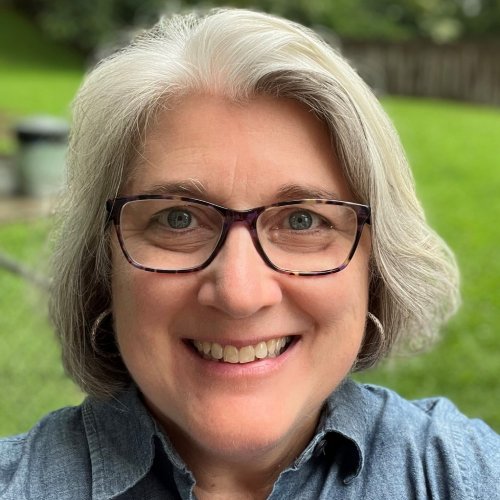Boeing Center’s supply chain conference looks at tech, environmental and geopolitical challenges
- December 8, 2023
- By Suzanne Koziatek
- 3 minute read

Post-pandemic global supply chains continue to evolve, shaped by new technologies, geopolitical realignments and sustainability concerns.
WashU Olin’s Boeing Center for Supply Chain Innovation provided a platform for supply chain professionals and students to learn about trends and best practices at the center’s annual industry conference.
Industry leaders discussed the rapid ramp-up of artificial intelligence, the business advantages of sustainability and China’s evolving role in critical supply chains. Companies and organizations presenting at the conference included Bayer, Emerson, Edward Jones and Simple Rose.
More than 120 attendees also heard from Olin faculty, including Panos Kouvelis, director of the Boeing Center and Emerson Distinguished Professor of Supply Chain, Operations and Technology.
“We were happy to be able to provide a venue for the exchange of insights between academia and the corporate world,” Kouvelis said. “We always strive to be a source of valuable supply chain and operational excellence information for our member companies and their employees, but also for professionals in the broader St. Louis region.”
Some highlights from the November 7 event:
The promise—and limitations—of AI
Artificial intelligence is a valuable tool in the continuous process of improving supply chains. Noah Ledbetter, solutions architect for business optimization leader Simple Rose, said machine learning can help make processes more efficient. However, he noted that true supply chain optimization can’t solely rely on it. “AI and machine learning are very good at learning to do exactly what we’ve already done,” making it less useful in entirely new situations such as the COVID pandemic.
Ledbetter said AI can be a component of a more comprehensive optimization modeling strategy that looks at all the options available to find the best ones. “High levels of complexity are usually involved, and it usually involves specialists like the people in this school.”
Zar Toolan, a principal at Edward Jones, outlined how the company is incorporating AI to better serve customers, including better matching of clients with advisors and arming branch teams with better information.
He notes that these efforts don’t replace face-to-face interactions, citing research that shows clients still prefer to talk to a human advisor. “We don’t see the human-centered part of our world going away,” Toolan said. “We do see it being enhanced by AI.”
Sustaining the planet and the bottom line
Several speakers talked about their companies’ efforts to enhance sustainability across all three scopes of their activities:
Scope 1—the direct output of their own processes
Scope 2—the indirect effects of their energy purchases
Scope 3—the indirect environmental impacts along the value chain, including the supply chain.
Representing Emerson, Fred Perreand, vice president for global supply chain operations, and Olivia Poon, senior manager for responsible sourcing, discussed the company’s efforts to achieve net zero greenhouse emissions by 2045. Among their strategies are internal “treasure hunts” for energy leakage in their own operations and collaborations with their suppliers to improve sustainability.
Igor Neves, global logistics insights and sustainability manager at Bayer, described how the company is partnering with suppliers to reward them for more sustainable practices. In addition, Bayer’s crop sciences division is engaging with customers in a pilot program that gives them discounts on deliveries that minimize transportation emissions. Bayer achieves this by consolidating routes, which can lead to longer delivery times.
Customers are very willing to embark on the sustainability journey. They are a very important part of the supply chain.
—Igor Neves, Bayer
Resilient supply chains and the China question
In the aftermath of COVID-related shortages, many observers predicted a decreased reliance on China throughout supply chains, with terms like “decoupling,” “de-risking” and “friend-shoring” gaining popularity.
Kouvelis said the reality is more complicated than that.
While data shows that direct US imports from China have decreased since the pandemic, much of that activity has shifted to other Asian countries as well as other nations that do significant business with China. “We’re decoupling, but not as much and not as fast as we think,” he said.
Kouvelis noted that China still has a chokehold on increasingly vital supply chains, such as those that go into building solar panels and batteries for electric vehicles.
Building new supply chains closer to home will be a lengthy, time-consuming enterprise, he said. “How much are you willing to pay? I can tell you you’re going to pay more.”
Media inquiries
For assistance with media inquiries and to find faculty experts, please contact Washington University Marketing & Communications.
Monday–Friday, 8:30 to 5 p.m.
Sara Savat
Senior News Director, Business and Social Sciences
